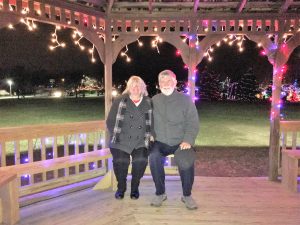 Luke 1:5-10
Luke 1:5-10
In the days of Herod, king of Judea, there was a priest named Zechariah, of the division of Abijah. And he had a wife from the daughters of Aaron, and her name was Elizabeth. And they were both righteous before God, walking blamelessly in all the commandments and statutes of the Lord (Luke 1:5-6 ESV).
Luke opened his account of Jesus, God’s Anointed One, and the good news with these words. They also begin his telling of the Christmas story, which is part of God’s great story. I do not think that most people consider this part of the Christmas story, but it provides the setting in which the story occurs. In fact, if we listen to and learn this part of the story, we gain important information to understand the whole story.
Consider the historical setting. In the days of Herod… He was a ruler noted for his cunning, cruelty, and constructions. He was called Herod the Great for the last of these, for he built many fine buildings, including the rebuilding of the Temple. He died in early 4 B.C., which means that Jesus was born sometime in 5 B.C. (Yes, the calendar is off by five years. People, not God, make calendars.) Jesus was born in the full light of human history. Luke tells us of two people, Zechariah and Elizabeth, who, although not in the line of the Messiah, had an important role in the early part of the story. Notice the details. Zechariah was in the eighth division of the priesthood that had been established by King David over a thousand years before that time. Zechariah and Elizabeth were godly people; they were fully committed followers of the Lord. However, there was an emptiness in their lives. Elizabeth was barren, and since they were advanced in years (probably their later forties), there was little human hope of having a child. One of life’s mysteries is the experience that many people who would love to have children have none, while others who do not seem to care for children easily have them. Both situations produce many tears. This is history in agony. People need a Savior for many reasons.
Now while he was serving as priest before God when his division was on duty, according to the custom of the priesthood, he was chosen by lot to enter the temple of the Lord and burn incense. And the whole multitude of the people were praying outside at the hour of incense (Luke 1:8-10 ESV).
The Christmas story is connected with the old covenant and its worship. Priests and the temple are found throughout Luke 1-2. Worship of God fills both chapters. It was the time of the law covenant that pointed to the coming Messiah in all its types and shadows (cf. Hebrews 10:1). The curtain started to fall on that era when Zechariah went into it to offer incense as prescribed by the law. However, on that day no one anticipated the supernatural event about to happen. Zechariah was merely one of a long and large company of priests that had offered incense over a course of nearly fifteen hundred years. A crowd of faithful people had gathered for the event. During a time of Gentile rule over God’s covenant people, they remembered the God who had called them to be his people and who had promised the Messiah, the one who would set them free. But on that day, no one expected God to speak. He had not spoken in four hundred years, but they still had gathered to pray to wait on the Lord. Faith.
Christmas is a season of waiting, not for parties, programs, and presents. It is the time to wait on the Lord in worship. Many waited for Messiah’s first coming; we wait for his second coming. They waited in the rituals and regulations of the first covenant; we wait and watch in the Holy Spirit in the second covenant. They gathered in worship; we should also gather together to worship in love, joy, and peace. The days of Herod are long past. We live in the last days. Does an attitude of hopeful worship fill our souls this Christmas season?
Grace and peace, David

 Luke 17:26-30
Luke 17:26-30